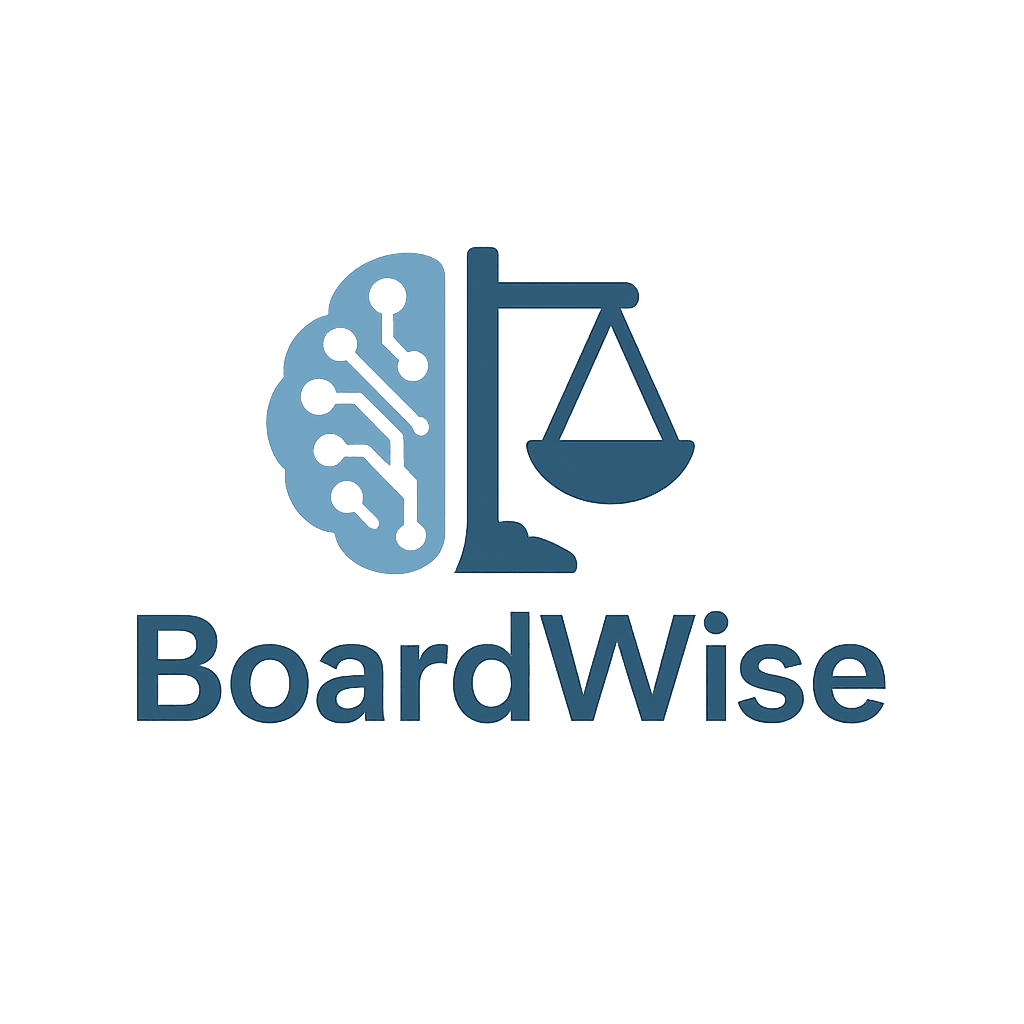Common reasons doctors get reported to a medical board and how to handle a complaint
Matt
Founder & CEO of BoardWise

Physicians can face a medical board complaint for a wide range of issues, from clinical judgment concerns to documentation, prescribing, boundaries, and administrative lapses. Although each state's statutes and procedures differ, there are well-documented patterns in the kinds of conduct that lead to investigations and discipline, and there are reliable steps you can take to respond effectively if you receive a notice from your board (FSMB, n.d.; Public Citizen, 2024).
Frequent complaint and discipline categories
1) Substandard care or negligence. Boards regularly investigate allegations that care fell below accepted standards, including delayed diagnosis, poor follow-up, or inadequate supervision. Analyses of recent disciplinary actions show negligence and related quality-of-care issues are among the most common reasons for sanctions (Saver, 2024; FSMB, n.d.).
2) Problematic record-keeping and documentation. Missing, altered, or inadequate records are frequent bases for action and often aggravate other allegations because documentation is critical to evaluating care and continuity (Saver, 2024; FSMB, n.d.).
3) Improper prescribing and controlled substances. Inappropriate or non-therapeutic prescribing, failure to query prescription monitoring programs, and prescribing to family or close associates appear repeatedly in board orders and news releases (FSMB, n.d.; CT Insider, 2025). Telehealth prescribing rules add complexity and are still evolving, which can increase risk if clinicians are not current on federal and state requirements (FSMB, 2024a).
4) Professional boundaries and sexual misconduct. Boundary violations remain a significant source of discipline across states and specialties (FSMB, n.d.).
5) Substance use and impairment. Alcohol or drug use that affects practice, or refusal to comply with monitoring, frequently triggers complaints and remedial or disciplinary measures (FSMB, n.d.; CT Insider, 2025).
6) Fraud, dishonesty, or criminal conduct. Billing fraud, false statements on applications, and certain criminal convictions are routinely listed as grounds for discipline (FSMB, n.d.; Public Citizen, 2024).
7) Administrative noncompliance. Failure to meet continuing medical education requirements, to respond to a board inquiry on time, or to follow probation terms can itself produce discipline even apart from clinical concerns (FSMB, n.d.; MedPro Group, n.d.).
8) Telemedicine and cross-border practice. Post-pandemic realignments in telehealth policy, licensure, and prescribing have created new compliance pitfalls, especially when treating patients across state lines without appropriate authorization or prescribing without an adequate in-person or telemedicine evaluation under applicable rules (Pandya, 2022; FSMB, 2024b).
9) Public communications that affect patients. Some recent cases involve misinformation and other public-facing conduct, although boards continue to focus most on patient-care and documentation issues (Saver, 2024).
What to do if you receive a complaint or notice
Stay calm and read the notice carefully. Identify the allegations, deadlines, and requested materials. State procedures vary and deadlines are strict. Missing a response date can itself be a violation (MedPro Group, n.d.).
Do not alter records. Secure the complete chart and related data immediately. Create a contemporaneous chronology and preserve messages, orders, and device logs that reflect clinical decision-making (MedPro Group, n.d.).
Notify your insurer or risk manager promptly. Most professional liability policies require notice and can fund counsel or risk services. Early involvement preserves coverage and improves coordination (MedPro Group, n.d.; Professionals Advocate, 2024).
Seek experienced counsel or structured guidance. Many experts recommend consulting an attorney who handles board matters or using a standardized response workflow to ensure accuracy, tone, and completeness. The process is administrative law and is formal even when it feels informal (The Hospitalist, 2024; Professionals Advocate, 2024).
Respond professionally and factually. Provide a concise, organized narrative that addresses each allegation with references to the record. Avoid speculation. If care improvements or remediation are appropriate, describe them candidly, such as CME, documentation audits, or protocol updates (MedPro Group, n.d.).
Understand your state's process. Some states limit how far back the board can act or set milestones for screening, investigation, and expert review. For example, California generally cannot take disciplinary action for matters older than seven years, with specific exceptions, and it explains its consumer complaint workflow publicly (Medical Board of California, n.d.). Your jurisdiction's timelines and terminology may differ, so check your board's guidance.
Mind telehealth specifics. If the case involves remote care or prescribing, verify which emergency flexibilities remain and which have expired. Federal telemedicine prescribing flexibilities have seen temporary extensions while permanent rules are developed, but state law and standard-of-care expectations still apply (FSMB, 2024a; Pandya, 2022).
Prioritize self-care and team communication. Investigations can be stressful. Coordinate with leadership, compliance, and close colleagues on how to handle patient transfers, messaging, and scheduling while maintaining confidentiality and professionalism (The Hospitalist, 2024).
A practical checklist for physicians
- Calendar all deadlines from the notice on day one.
- Preserve the chart and all related artifacts.
- Notify insurer and risk management.
- Engage board-experienced counsel or a structured response workflow.
- Draft a factual timeline keyed to the record.
- Address each allegation explicitly and succinctly.
- Identify and document remediation where appropriate.
- Keep copies of all submissions and confirmations.
- Do not contact the complainant directly.
- Monitor for follow-up requests and reply on time.
Bottom line
Most board matters are resolved short of severe sanctions, but the outcome often turns on the physician's early decisions. Clear documentation, timely and professional communication, and an accurate, well-organized response are your best tools. Staying current on prescribing, documentation, telehealth, and boundary standards reduces your likelihood of ever receiving a complaint. If a notice arrives, act methodically and get qualified help.
References
- CT Insider. (2025, May 22). Connecticut medical board restricts the license of Stamford doctor for excessively using drugs. https://www.ctinsider.com/news/article/ct-medical-examining-board-scott-berger-stamford-20336496.php
- Federation of State Medical Boards. (2024a, November 20). DEA extends telemedicine flexibilities through 2025 [PDF]. https://www.fsmb.org/siteassets/advocacy/news/november-20-2024.pdf
- Federation of State Medical Boards. (2024b, August 21). Regulatory news: Telehealth laws challenged in court [PDF]. https://www.fsmb.org/siteassets/advocacy/news/august-21-2024.pdf
- Federation of State Medical Boards. (n.d.). About physician discipline. https://www.fsmb.org/u.s.-medical-regulatory-trends-and-actions/guide-to-medical-regulation-in-the-united-states/about-physician-discipline/
- Federation of State Medical Boards. (n.d.). Physician discipline in the United States. https://www.fsmb.org/u.s.-medical-regulatory-trends-and-actions/u.s.-medical-licensing-and-disciplinary-data/physician-discipline/
- Medical Board of California. (n.d.). Guide to the complaint process. https://www.mbc.ca.gov/Resources/brochures/Complaints.aspx
- MedPro Group. (n.d.). Ten strategies for responding to state board complaints and inquiries. https://www.medpro.com/responding-to-medical-board-complaints-inquiries
- Pandya, A. (2022). The regulatory environment of telemedicine after COVID-19. Journal of Patient Experience, 9, 1–6. https://pmc.ncbi.nlm.nih.gov/articles/PMC9277986/
- Professionals Advocate. (2024). Navigating a medical board complaint [PDF]. https://www.professionalsadvocate.com/data/newsletter/pdf/DRs%20RX%20Spring%202024.pdf
- Public Citizen. (2024, October 4). Ranking of the rate of state medical boards' serious disciplinary actions, 2021–2023. https://www.citizen.org/article/ranking-of-the-rate-of-state-medical-boards-serious-disciplinary-actions-2021-2023/
- Saver, R. S. (2024). Medical board discipline of physicians for spreading misinformation. JAMA Network Open, 7(6), e2415508. https://jamanetwork.com/journals/jamanetworkopen/fullarticle/2826059
- The Hospitalist. (2024, February 1). How to handle medical board complaints and investigations. https://www.the-hospitalist.org/hospitalist/article/36422/business-of-medicine/how-to-handle-medical-board-complaints-and-investigations/
Note: Because state laws and timelines vary, physicians should consult their state medical board's rules and experienced counsel for jurisdiction-specific requirements.
